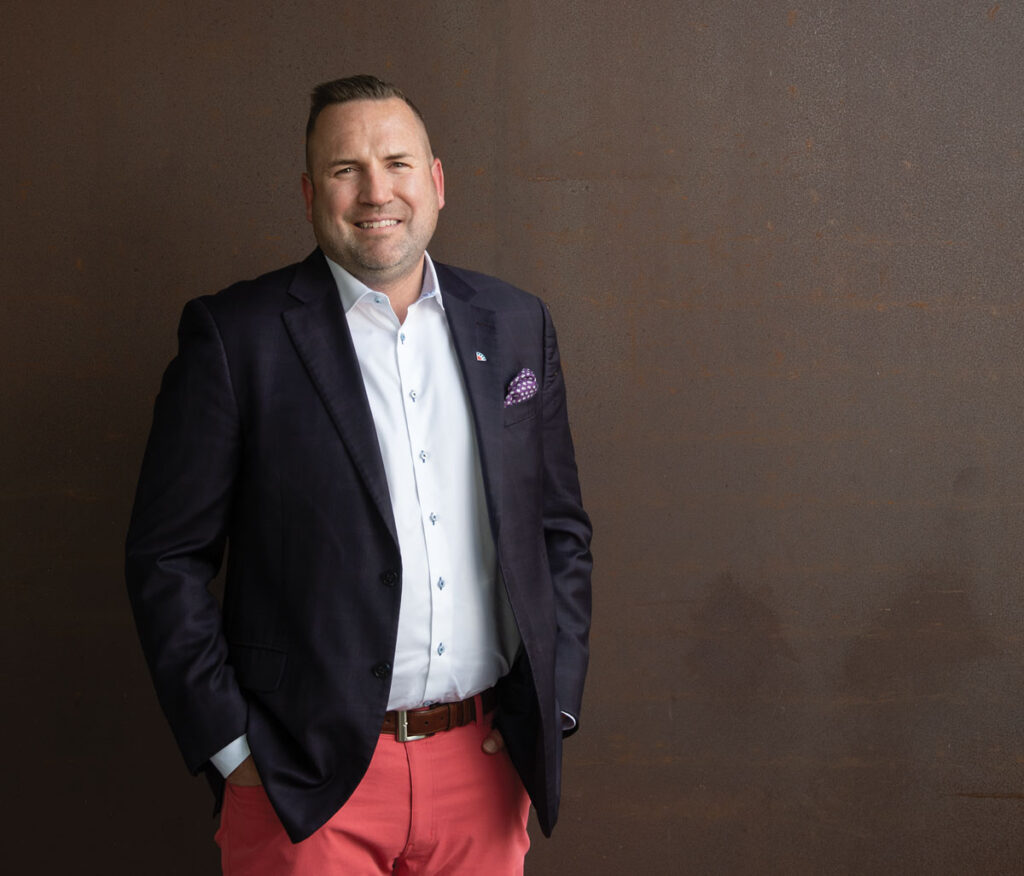A Closer Look: Jacob Jaacks
Financial advisor, New England Financial
Jacob Jaacks is entering a new game. He completed an 11-year professional basketball career, spent primarily in Europe, in July 2011. Later that year, he entered negotiations to join longtime Greater Des Moines businessman Jerry Johansen as a financial adviser with New England Financial. Jaacks earned a reputation as a bruising big man for the University of Iowa Hawkeyes over two seasons from 1998 to 2000. He was recruited by Tom Davis, who claimed more victories than any other Hawkeye basketball coach, and played on the team that made it to the Sweet 16 of the NCAA basketball tournament in 1999, losing to the University of Connecticut Huskies, the eventual tournament winner. He made a transition the following year, playing under first-year coach Steve Alford. Jaacks led that team in rebounding and was second in scoring. Before arriving at Iowa, Jaacks was a junior college All-American. He grew up in Cedar Rapids, owns a home in Iowa City and is preparing to settle down in West Des Moines with fiancée Amy Roder.
With the fiscal talks going on and all of the uncertainty around things like estate and capital gains taxes, this is a dicey time to offer financial advice.
It would be better if we knew what was going to happen, whatever it’s going to be. We’re trying to be more proactive for our clients. It’s the unknown, that’s the worst thing.
Why did you decide to go into financial advising?
I’ve worked with a financial adviser since I was 22 years old. That advice and the guidance he gave me regarding some of the things with finances and money that get pretty complicated, things you really don’t want to spend a lot of time with because you have a lot of other things to deal with. To have that resource with him, I wanted to be that person. Also, being around a lot of athletes and seeing how they handle their finances, and people in general, it’s a tough thing. I like to be that resource. I like helping people make tough decisions … make sure everything is going to be safe and secure.
You must have had trouble knowing where to call home while playing in Europe.
The season mirrors the (National Basketball Association) season. It’s actually longer than the NBA season, which is funny to think about because that season is already long enough. The preseason in Europe begins in mid- to late August, going off to some mountain resort and running different terrain and playing preseason tournaments for six weeks, then the season lasts until the following June or July. It’s a nine- to 10-month season. I spent my first couple of years in Los Angeles, training and staying in shape for the NBA summer leagues, then moved to Chicago for about three years. The last three years of my career, I bought a house in Iowa City and worked out at with the strength coach at the University of Iowa. After I finished playing, it was a natural progression to return to Iowa.
Some people consider the firing of Tom Davis as the end of the golden era for Iowa basketball.
It’s really true about Dr. Tom that you don’t know what you have until it’s gone. He’s one of those few guys whom you can’t say anything bad about. He did things the right way. He taught me a lot while he was there, but a lot after I left.
Did the coaching change and going from a good team to a mediocre team affect your ability to go into the NBA?
It probably didn’t help. It’s a gamble either way. I had above average numbers on a below average team. I did play with the (Toronto) Raptors and I played in their summer league for four summers. I was fortunate to play in the top leagues in Europe. Looking back, it was a great experience. You get paid pretty handsomely and you get learn about other countries. It was great, at 22 years old, being dropped in the middle of France and looking around and saying we are not in Kansas anymore.
Have your most memorable moments been on the basketball court?
More than half of my life has been focused on basketball. Now we’re trying to shift gears and get into the real world. This transition has been nothing but a positive thing. I understand why some guys struggle; it’s an entirely different world. Athletes are very regimented; they’re used to being prima donnas and everything is taken care of and now people don’t actually care about you in the real world; they have other things to worry about.











